News
Micronaut Predator Renamed to Micronaut Data
:%s/Predator/MicronautData/g
We have heard feedback from the community that the word Predator is a source of anxiety for some.
Community feedback has been critical to our success over the years, and all of it is welcome and considered. In the interest of addressing those shared concerns, we are abandoning the use of the word Predator with respect to our technology and will refer to our newly announced technology simply as Micronaut Data.
Precomputed Data Repositories
Accessing a database with JDBC Predator and Micronaut
I should write some Micronaut Data guides. In the meanwhile, @franz_see shows a step by step example of an app using Micronaut Data JDBC, including the use of Micronaut Data annotations.
This is project is similar to the official micronaut guide for Hibernate/JPA and official micornaut guide for MyBatis, except that the underlying database access library uses micronaut-predator-jdbc
JPA Data Access with Micronaut Predator
@piotr_minkowski writing a great tutorial about how to start with Precomputed Data Repositories in Micronaut:
In this article I’m going to show you how to include Micronaut Predator to your application and use its main features for providing JPA data access.
Another tutorial which uses Maven. Using Micronaut exposes me to a JVM Community beyond the Groovy niche and you see Maven market dominance shine through.
It is noteworthy that both two queries return DTO objects as a result inside collection. That’s possible because Micronaut Predator supports reflection-free Data Transfer Object (DTO) projections if the return type is annotated with @Introspected.
I am partisan of DTOs projections. In my current project, we have @Entity classes and repository interfaces. Repositories never return @Entity classes. Never.
We used to say if the thing is touched by Jackson, annotate it @Introspected. Now we say, if you use a POJO annotate it @Introspected.
Micronaut Predator repositories supports batch operations.
GORM users will be familiar.
employeeRepository.saveAll(...
In my opinion the support for ORM via project Predator may be the reason that developers decide to use Micronaut instead of Spring Boot.
Amen to that.
Books
📚 Shape Up: Stop Running in Circles and Ship Work that Matters
@rjs, Basecamp's head of strategy, has published a new book: Shape Up.
I have avidly read the first part of the book - first 6 chapters - and it is brilliant.
I am a big fun of Basecamp, previously known as 37 signals. Probably the company which I admire the most. Thus, getting it to understand how they work, is priceless to me.
For one, we’re not into waterfall or agile or scrum. For two, we don’t line walls with Post-it notes. For three, we don’t do daily stand ups, design sprints, development sprints, or anything remotely tied to a metaphor that includes being tired and worn out at the end. No backlogs, no Kanban, no velocity tracking, none of that.
We have an entirely different approach. One developed in isolation over nearly 15 years of constant trial and error, taking note, iterating, honing in, and polishing up. We’ve shaped our own way.
This comes dear to my heart. I have been working on an 2 weeks agile process for the first time in my life for the past 6 months and I am not enthusiastic about it.
As of today, the book is published only as a free read on the web. It seems they plan to release as a paperback. I hope that it becomes an Audible book as well.
This reminds me of another of my favorite books: Getting Real also by 37 Signals crew. I believed originally was offered as a set of online essays and later was offered for free as a PDF and then sold as a paperback. I first read it online and I have a paperback copy on my self. So maybe that it is good strategy.

Predator was an acronym of Precomputed Data Repositories and obviously an homage to Predator Sci-fi movie from 1987. A movie which many of the Micronaut users may know or love. It was not an homage to Adidas Predator, probably the most famous soccer shoes in the world. And of course, it was not implied to convey an association with sexual predators. A term which I believe is part of US justice system to refer to behaviors such as Bill Cosby's sexual assaulting. Some people were vocal about their dislike of Predator because the latter association. Personally, I think we should not kidnap words.
It reminded me of the origins of this newsletter. I started this newsletter with this idea. A curated collection of links distributed via email about the Groovy ecosystem. I originally named the newsletter Groovy Dev Week. A clear analogy to IOS Dev weekly. A hugely successful newsletter in the iOS world, an ecosystem I was working a lot with around 2014/2015. In fact to this day, I am using the software created by iOS Dev Weekly author to publish this newsletter.
Guilliame Laforge was publishing in his blog a series of entries named Groovy Weekly. I don't think it was distributed via email and it was completely different format to me. It was a more exhaustive collection of links, while I aimed to build a curated selection of 6-10 links per email.
I had some experience with Groovy or Grails but I did not considered myself an expert. When, I first announced the newsletter, I immediately got backlash. People pointed me to other blog series in the ecosystem or suggested me to stop and contribute to others. Compared to the backlash about Predator name, what I got was a mild reaction. But it felt really discouraging.
It takes some courage to put something out in the open and committing publicly to do something. To get hammered immediately is soul crushing.
I decided it to change the newsletter name to Groovy Calamari (a brand I am really fond of) weeks later and focused on what is important
Sergio del Amo